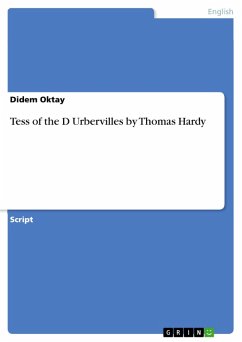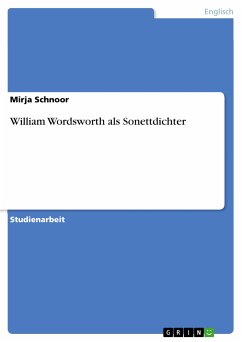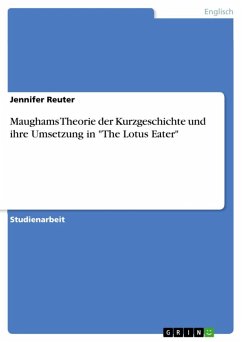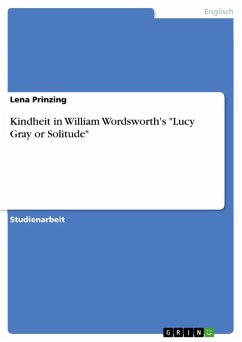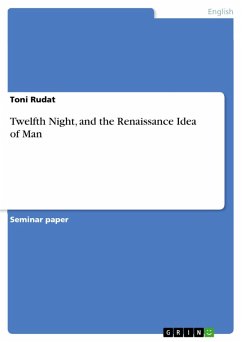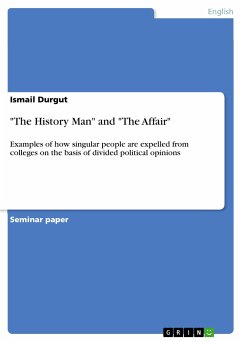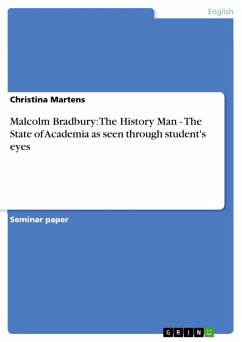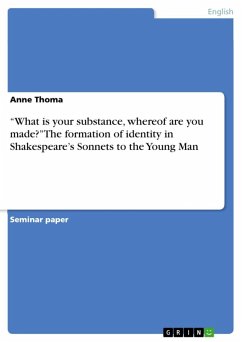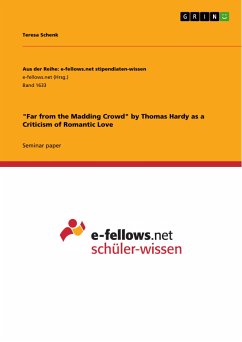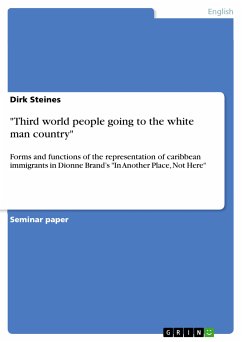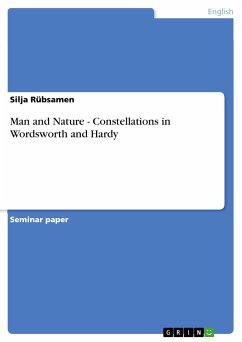
Man and Nature - Constellations in Wordsworth and Hardy (eBook, ePUB)

PAYBACK Punkte
0 °P sammeln!
Seminar paper from the year 2001 in the subject English Language and Literature Studies - Literature, grade: A+, University of Massachusetts - Amherst (English Department), course: Tomas Hardy, language: English, abstract: I. Introduction: "What a piece of work is a man, how noble in reason, how infinite in faculties, in form and in moving how express and admiable; in action how like an angel, in apprehension how like a god: the beauty of the world, the paragon of animals - and yet, to me, what is this quintessence of dust?"(1) Throughout his work, Hardy seems to ask himself this question. Esp...
Seminar paper from the year 2001 in the subject English Language and Literature Studies - Literature, grade: A+, University of Massachusetts - Amherst (English Department), course: Tomas Hardy, language: English, abstract: I. Introduction: "What a piece of work is a man, how noble in reason, how infinite in faculties, in form and in moving how express and admiable; in action how like an angel, in apprehension how like a god: the beauty of the world, the paragon of animals - and yet, to me, what is this quintessence of dust?"(1) Throughout his work, Hardy seems to ask himself this question. Especially many of his late poems are dedicated to the question what the quintessence of dust, man, is in relation to nature, and to the elements he is composed of. Pressing "against the limits of nineteenth century realist convention,"(2) Hardy's concept of an essential identity of humanity and the rest of nature(3) enters into a new viewpoint that is incommensurate both to the realist approach to man and nature Hardy took in his novels, and to the Romantic approach that took the form of a "sentimental nature pantheism [which] was often made a surrogate for lost faith."(4) The purpose of this paper will be an analysis of essential features in two poems by Thomas Hardy, "Voices of Things Growing in a Churchyard" and "Nature's Questioning" that express Hardy's concept of nature and its relationship to man, and a short comparison of these features with the concept of nature and human life expressed in Romantic poetry, most notably in Wordsworth's poetry. The poems chosen here are the five "Lucy" poems written in Germany in 1799, which are fitting because they contain a combination of topics we can also encounter in Hardy's poems: nature and man, and the unavoidable link of them by death, which indicates an overall equality of "this quintessence of dust" and the nature it derives its existence from. [...] _____ 1 Hamlet, II,2 327-332. 2 Peter Widdowson: Thomas Hardy. Plymouth, 1996. 3 James O. Bailey: The Poetry of Thomas Hardy. University of North Carolina Press, 1970. p. 462. [...] 4 Edward Wagenknecht: "Art is Long and Time is Fleeting." In: Henry Wadsworth Longfellow [...]
Dieser Download kann aus rechtlichen Gründen nur mit Rechnungsadresse in A, B, BG, CY, CZ, D, DK, EW, E, FIN, F, GR, HR, H, IRL, I, LT, L, LR, M, NL, PL, P, R, S, SLO, SK ausgeliefert werden.




